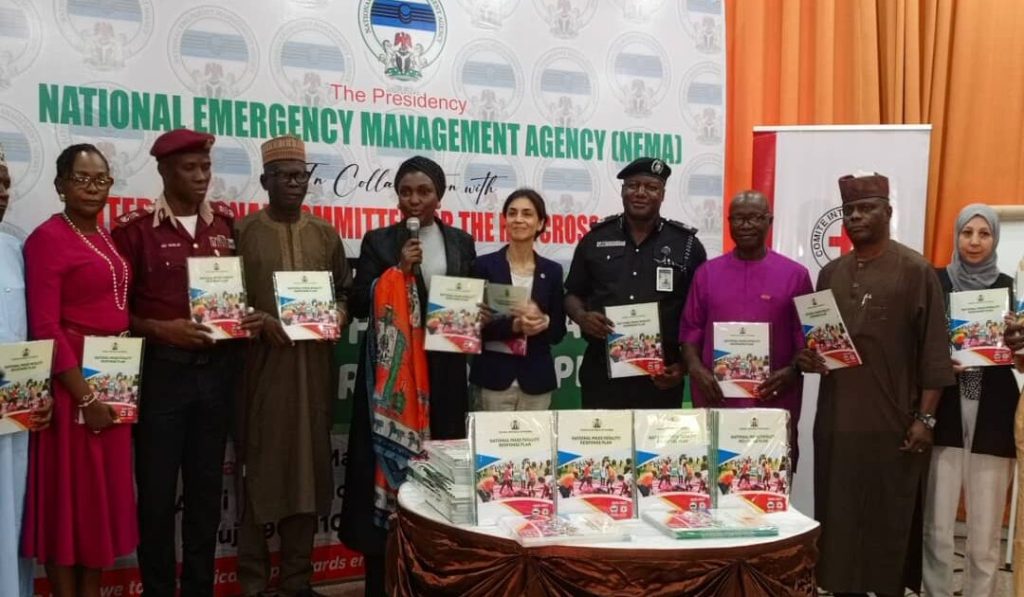The Nigerian government has launched a groundbreaking National Mass Fatality Response Plan, a comprehensive framework designed to manage mass casualty events with dignity, respect, and efficiency. Driven by the increasing frequency of tragedies such as explosions, floods, building collapses, and epidemics, the plan aims to transform the nation’s response to such incidents, shifting from reactive measures to proactive preparedness. This meticulously crafted document, developed through extensive consultation and informed by international best practices, offers detailed standard operating procedures to ensure respectful and professional handling of the deceased, even amidst the chaos of a disaster. The plan prioritizes not only operational effectiveness but also the preservation of the humanity and identity of every victim. It marks a significant stride in strengthening Nigeria’s capacity to manage mass fatalities, fostering inter-agency coordination, and providing solace to grieving families.
The unveiling of the plan, a collaborative effort between the National Emergency Management Agency (NEMA) and the International Committee of the Red Cross (ICRC), signifies a national commitment to improving disaster preparedness and response mechanisms. The plan’s development, spanning seven years, underscores the dedication to ensuring that the document serves as a practical tool rather than a symbolic gesture. Emphasis has been placed on its implementation, particularly by state emergency management agencies, recognizing their crucial role as first responders in managing the aftermath of disasters. This underscores the importance of translating the plan’s principles into action, ensuring that the dignified treatment of victims remains paramount.
The ICRC expressed optimism regarding the plan’s swift operationalization, highlighting its potential to enhance preparedness, coordination, and dignity in mass fatality response. Describing the plan as a pathway to restoring dignity to the dead and hope to the living, the ICRC reaffirmed its commitment to supporting its implementation within its mandate, particularly in situations of armed conflict. The organization stressed the importance of turning the plan into a tangible reality through execution, pledging its continued support to NEMA and other relevant stakeholders. This collaborative approach emphasizes the shared responsibility for ensuring the plan’s effectiveness and its ability to achieve its intended purpose.
The World Health Organization (WHO) echoed this sentiment, recognizing the plan as a proactive and compassionate step towards strengthening emergency response. The WHO emphasized the plan’s role in enhancing multi-sectoral coordination, ensuring responder safety, upholding public health standards, and respecting cultural and religious considerations during fatality management. The organization pledged its ongoing technical support and collaboration, aimed at equipping national and sub-national levels to respond to emergencies with professionalism and readiness. This reflects a global recognition of the importance of coordinated efforts in disaster preparedness and response.
A key element of the National Mass Fatality Response Plan is its emphasis on a structured, dignified, and respectful approach to handling mass death incidents. This includes the establishment of a national registry for deceased persons, the adoption of the Incident Command Structure for crisis response, and the implementation of regular training and simulation exercises to enhance preparedness. The plan also underscores the importance of cultural and religious sensitivity, recognizing the diverse fabric of Nigerian society, and the need for collaboration among local and international stakeholders. This holistic approach ensures that the plan is both comprehensive and culturally appropriate.
Alongside the National Mass Fatality Response Plan, NEMA also unveiled its 2025 climate-related disaster preparedness and mitigation strategy document. This document assesses the disaster management implications of the 2025 Seasonal Climate Prediction, aiming to enhance preparedness against climate risks and related hazards. This demonstrates a proactive approach to disaster management, anticipating future challenges and developing strategies to mitigate their impact. The simultaneous launch of these two documents underscores Nigeria’s commitment to comprehensively addressing disaster preparedness and response, both in the immediate aftermath of tragedies and in anticipation of future risks.


